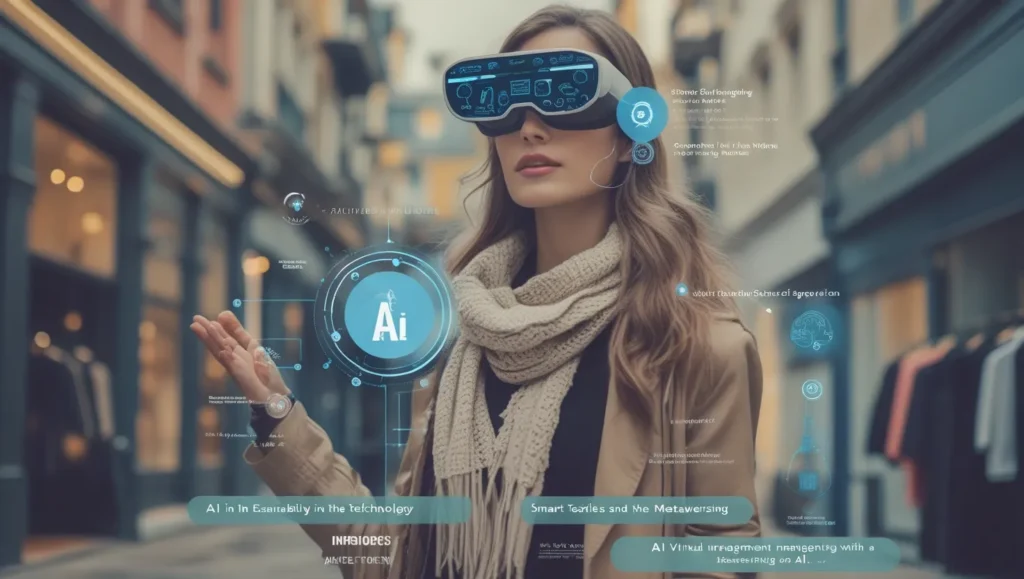AI Are Changing the Future of Fashion
The fashion industry has long been a playground for creativity and self-expression. However, with the rise of artificial intelligence (AI) and advanced technologies, the fashion landscape is evolving at an unprecedented pace. From personalized AI Are Changing the Future of Fashion shopping experiences to sustainable manufacturing, AI and technology are redefining how fashion is designed, produced, marketed, and consumed. This article delves into the transformative impact of AI and technology on the fashion world.
1. AI in Fashion Design and Creativity
AI algorithms are now capable of generating unique fashion designs by analyzing vast amounts of data on trends, colors, and consumer preferences. Designers use AI-powered tools to gain insights into market demands, predict upcoming trends, and create innovative collections. Generative design software, like those powered by machine learning, can suggest patterns, styles, and textures that may inspire designers to push creative boundaries.
Furthermore, companies are using AI to generate digital clothing prototypes, reducing the time and resources spent on creating physical samples. This also opens up opportunities for virtual fashion shows and digital-only collections, contributing to a more sustainable fashion ecosystem.
2. Personalized Shopping Experiences
AI has significantly enhanced the e-commerce experience by providing personalized recommendations to shoppers. Through machine learning algorithms, fashion AI Are Changing the Future of Fashion retailers analyze a customer’s browsing history, purchasing behavior, and preferences to offer curated product suggestions.
Virtual try-on technology and augmented reality (AR) tools allow customers to visualize how clothing and accessories will look on them before making a purchase. Brands like Gucci and Nike have embraced AR for interactive fitting rooms and virtual product trials, leading to higher customer satisfaction and reduced return rates.
3. Sustainable Fashion with AI
Sustainability is a major concern in the fashion industry, and AI is playing a critical role in promoting eco-friendly practices. AI-powered software can optimize fabric utilization, reducing waste during the production process. Predictive analytics also helps brands forecast demand more accurately, minimizing overproduction and excess inventory.
In addition, blockchain technology ensures transparency in supply chains by AI and Technology Are Changing the Future of Fashion tracking the journey of materials from sourcing to production. Consumers can make informed choices by verifying a product’s ethical and sustainable credentials.
4. Smart Textiles and Wearable Technology
The integration of technology into textiles has led to the emergence of smart fabrics and wearable devices. These textiles are embedded with sensors and conductive fibers that monitor body temperature, heart rate, and other vital signs. Fashion brands are collaborating with tech companies to create garments that offer both style and functionality.
For instance, self-heating jackets, color-changing fabrics, and garments that adapt to environmental conditions are no longer a concept of the future. Athleisure brands are particularly benefiting from these innovations by offering performance-enhancing clothing to athletes and fitness enthusiasts.
5. AI in Trend Forecasting and Market Insights
Trend forecasting has traditionally relied on the expertise of fashion analysts and market researchers. However, AI algorithms can now analyze social media trends, online searches, and customer feedback in real-time to predict emerging styles.
AI-powered platforms, like Heuritech and Trendalytics, use image recognition and data analytics to monitor street style, runway looks, and influencer content. This AI and Technology Are Changing the Future of Fashion data-driven approach allows brands to make informed decisions and release collections that resonate with their target audience.
6. Virtual Fashion and the Metaverse
The metaverse is creating new opportunities for digital fashion, where users can dress their avatars in virtual designer clothing. Brands are entering the virtual world by creating exclusive digital collections and collaborating with gaming platforms to sell virtual apparel.
Luxury brands like Balenciaga and Ralph Lauren have launched digital fashion experiences within gaming environments, providing immersive and interactive brand experiences. Additionally, NFTs (Non-Fungible Tokens) have enabled the sale of digital fashion items, further blurring the lines between physical and digital fashion.
7. Efficient Inventory Management and Supply Chain Optimization
AI-driven inventory management systems use predictive analytics to optimize stock levels, preventing overstocking or understocking issues. By analyzing sales data, market trends, and consumer behavior, these systems ensure products are available in the right quantities at the right time.
In supply chain management, AI-powered robots and automation have streamlined manufacturing processes, reducing production time and operational costs. Advanced logistics algorithms also enhance delivery efficiency, ensuring timely product distribution.
8. Enhancing Customer Service with AI
AI-powered chatbots and virtual assistants provide 24/7 customer support, handling inquiries, processing orders, and recommending products. Natural language AI Are Changing the Future of Fashion processing (NLP) enables these chatbots to understand and respond to customer queries in real time, enhancing the overall shopping experience.
Furthermore, AI can assist in post-purchase experiences by analyzing customer feedback to suggest improvements in product design, quality, and service.
Final Thoughts
The convergence of AI and technology is reshaping the fashion industry, offering AI Are Changing the Future of Fashion endless possibilities for creativity, efficiency, and sustainability. From personalized shopping experiences to sustainable production practices, these innovations are paving the way for a more inclusive and conscious fashion future.
Fashion brands that embrace AI and technology will undoubtedly stay ahead of the curve, delivering exceptional experiences to their customers. As the industry continues to evolve, the collaboration between human creativity and artificial intelligence will drive fashion into an exciting new era.

